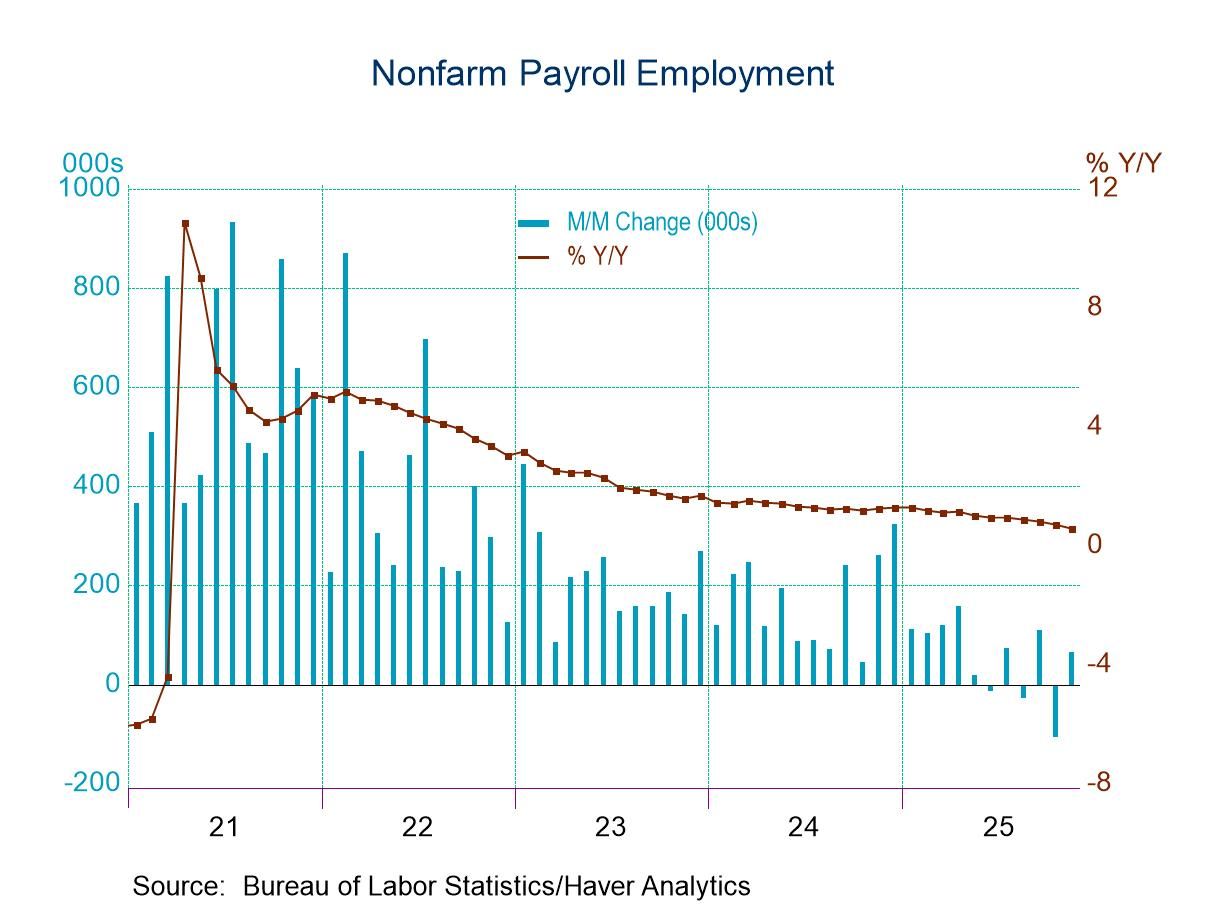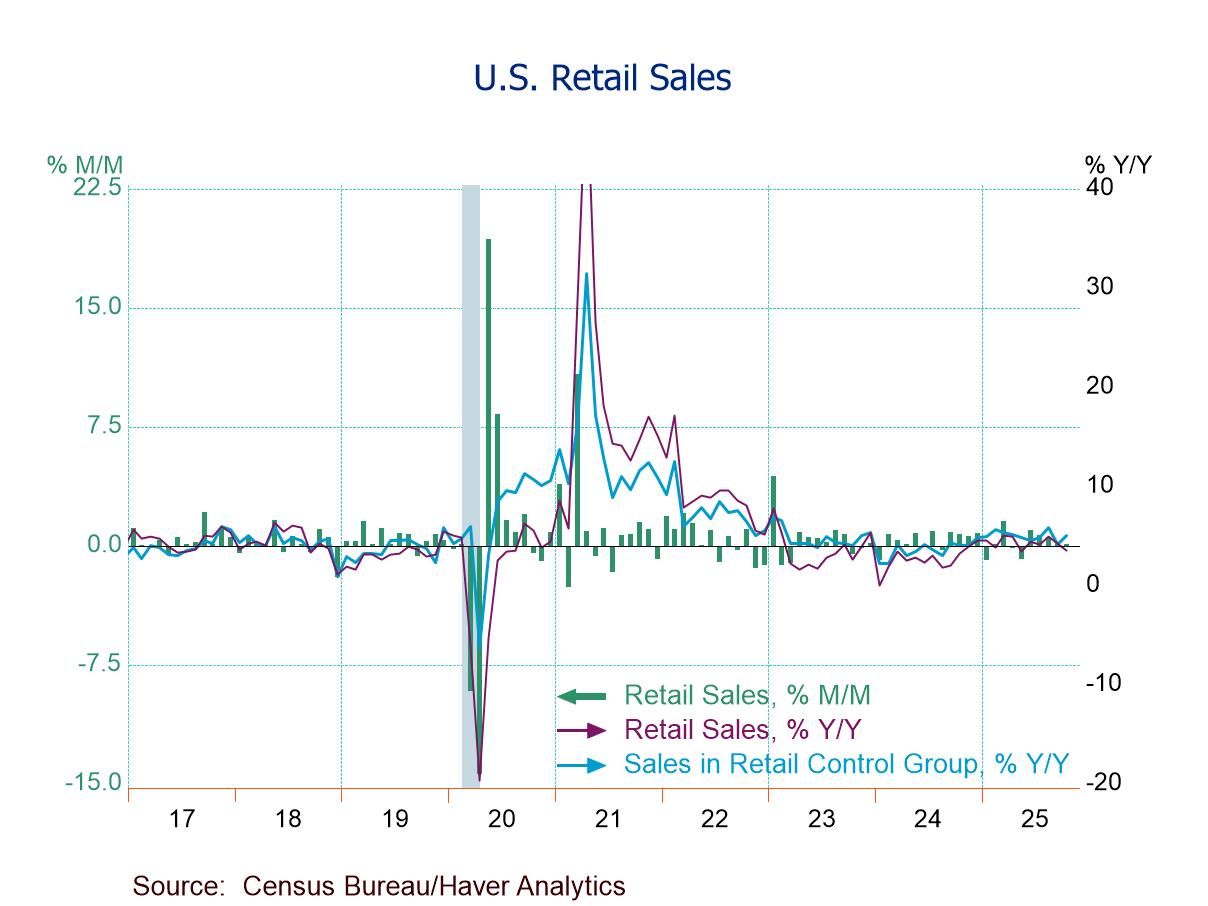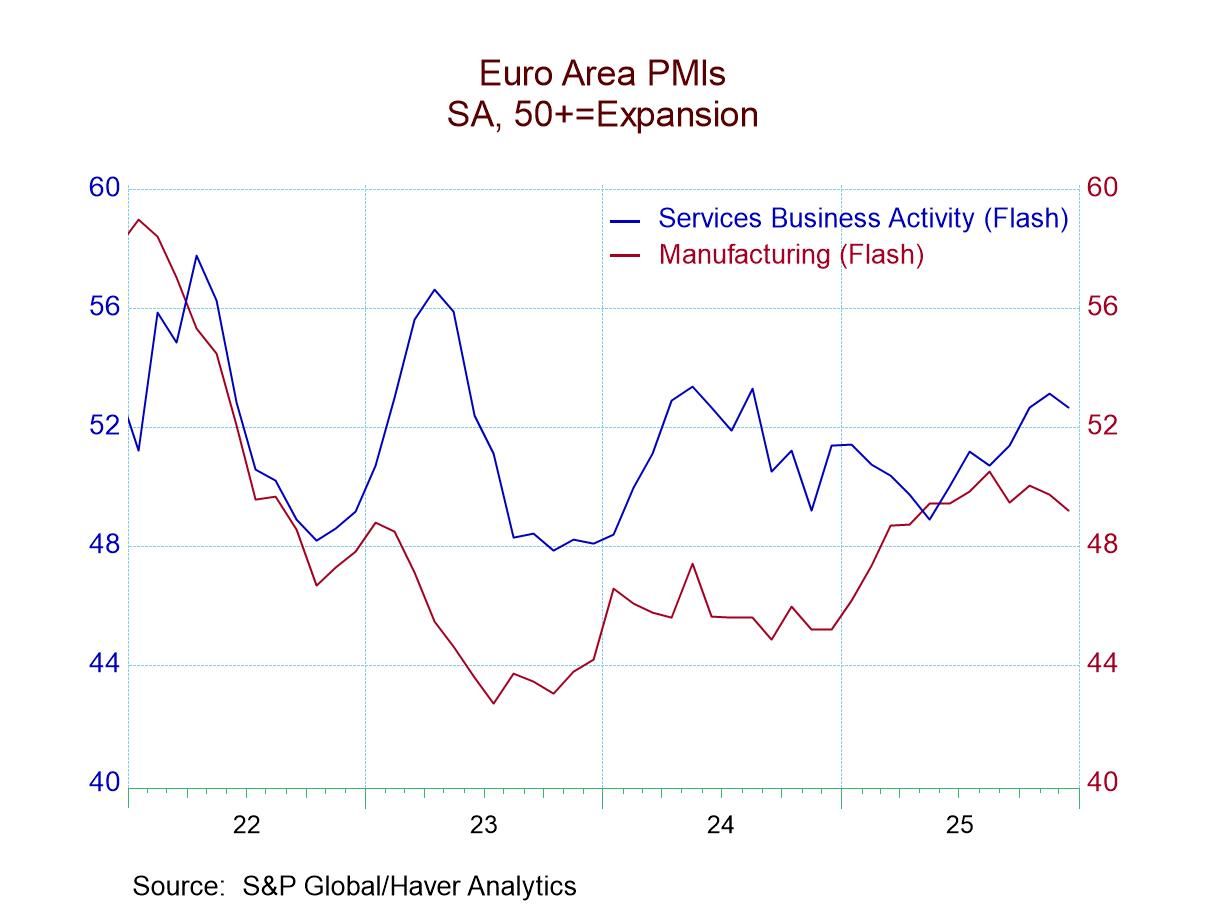 Global| Apr 27 2020
Global| Apr 27 2020Finland's Consumer Confidence to All-Time Low...Among Other Things
Summary
Finland's consumer confidence index has short history, but in the graphic we overlay the longer-lived EU measure of confidence against the Finnish domestic measure and the sharp recent collapse in the recent index is starkly revealed. [...]
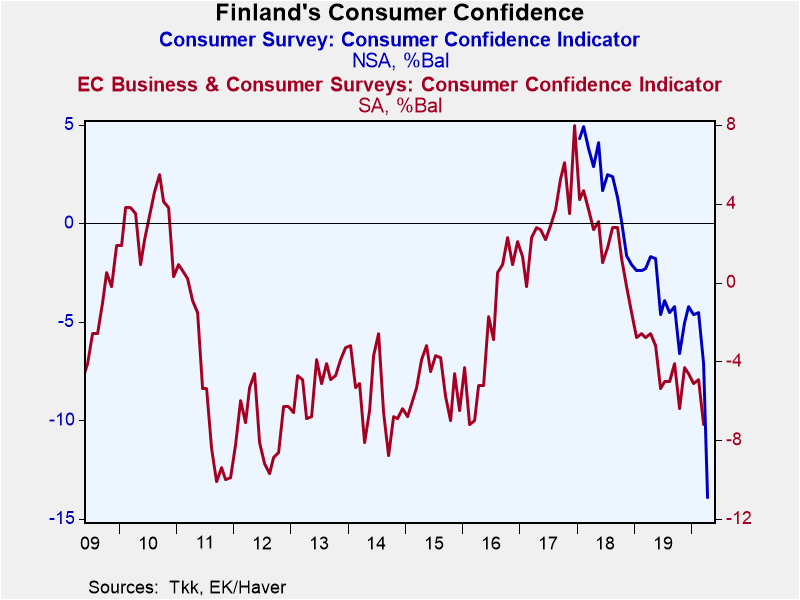 Finland's consumer confidence index has short history, but in the graphic we overlay the longer-lived EU measure of confidence against the Finnish domestic measure and the sharp recent collapse in the recent index is starkly revealed. Both measures have been declining from local peaks around early-2018.
Finland's consumer confidence index has short history, but in the graphic we overlay the longer-lived EU measure of confidence against the Finnish domestic measure and the sharp recent collapse in the recent index is starkly revealed. Both measures have been declining from local peaks around early-2018.
While there is a mantra afoot about how the global economy was doing fine until the coronavirus struck, the reality is that an extended recovery from the Great Recession and the stresses of a U.S.-China trade war as well as an EU-U.K. Brexit conflict had been also percolating and taking their toll.
The table below is the Finnish domestic confidence index. It shows sharp drops to weakness across the board; in most cases to an all-time low. The exception is a still-above median (above a rank of 50) assessment of the household financial situation and a low but not (yet) bottom scraping assessment of consumer prices.
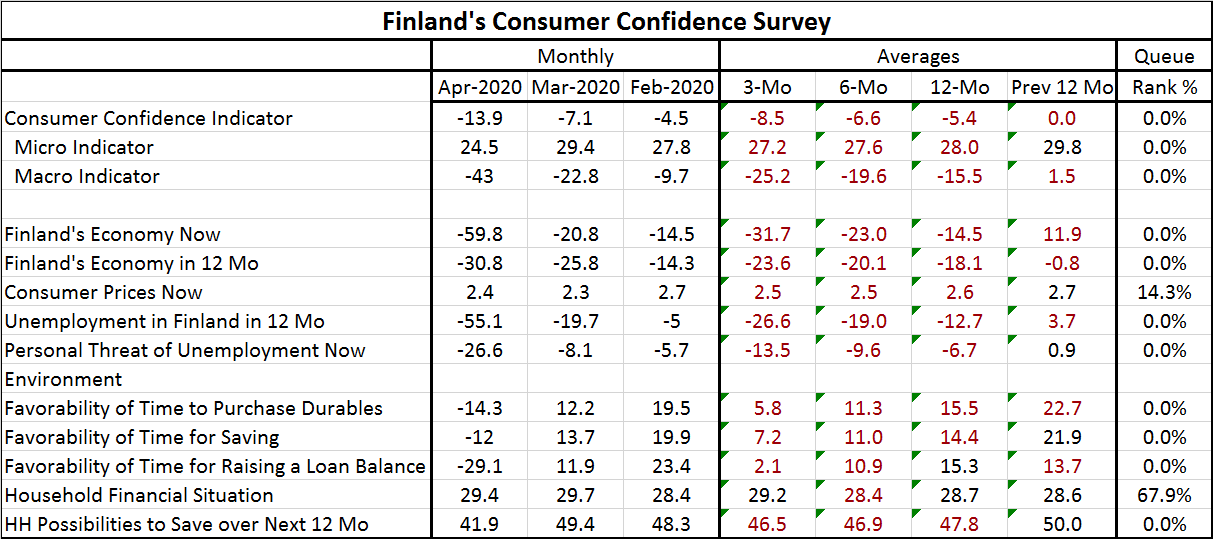
This is now the world we live in.
We are going to be getting a strict diet of extremely weak economic reports. And while stocks have risen in many places to significantly recovered readings, they have yet to face the worst of the conventional data that is yet to come such as negative GDP readings and historically unprecedented numbers for job losses as well as skyrocketing unemployment rates. That is to say that stocks are going up while the economy is still going down. So far, markets are being kept aloft by their ‘tech' sectors even though the breadth of the stock indexes largely is poor.
Sharp declines or weakness in things like consumer confidence or leading indicators or factory orders may chill economists to the bone, but these are the technical numbers the man-in-the-street does not relate to. Soon countries will be reporting numbers that will resonate with the man-in-the-street and they will chill him to the bone as well. Is all that baked into market prices or not?
Today the main numbers released globally were (1) a record increase for joblessness in France, (2) this report, that is a record low for Finland's (short history) of consumer confidence, (3) as well as a weak reading for Finland's manufacturing confidence, (4) Danish retail sales that fell impaired by the corona lockdown, (5) Hong Kong's sharp drop in its trade deficit, and (6) Brazilian confidence that hit a record low.
Countries from different continents issuing all sort of differing economic measures are reporting dramatically weakened results. There can be little doubt about what is in the pipeline. The question is whether people who have been sheltering and have a clear notion that things are really quite different have a clear appreciation of what this means for the economy. That is something we will be finding out in the coming weeks as a variety of economy indicators are released, including those that will resonate with the man-in-the-street who for the most part has not been in the street but has been sheltering in place- someplace.
Robert Brusca
AuthorMore in Author Profile »Robert A. Brusca is Chief Economist of Fact and Opinion Economics, a consulting firm he founded in Manhattan. He has been an economist on Wall Street for over 25 years. He has visited central banking and large institutional clients in over 30 countries in his career as an economist. Mr. Brusca was a Divisional Research Chief at the Federal Reserve Bank of NY (Chief of the International Financial markets Division), a Fed Watcher at Irving Trust and Chief Economist at Nikko Securities International. He is widely quoted and appears in various media. Mr. Brusca holds an MA and Ph.D. in economics from Michigan State University and a BA in Economics from the University of Michigan. His research pursues his strong interests in non aligned policy economics as well as international economics. FAO Economics’ research targets investors to assist them in making better investment decisions in stocks, bonds and in a variety of international assets. The company does not manage money and has no conflicts in giving economic advice.




